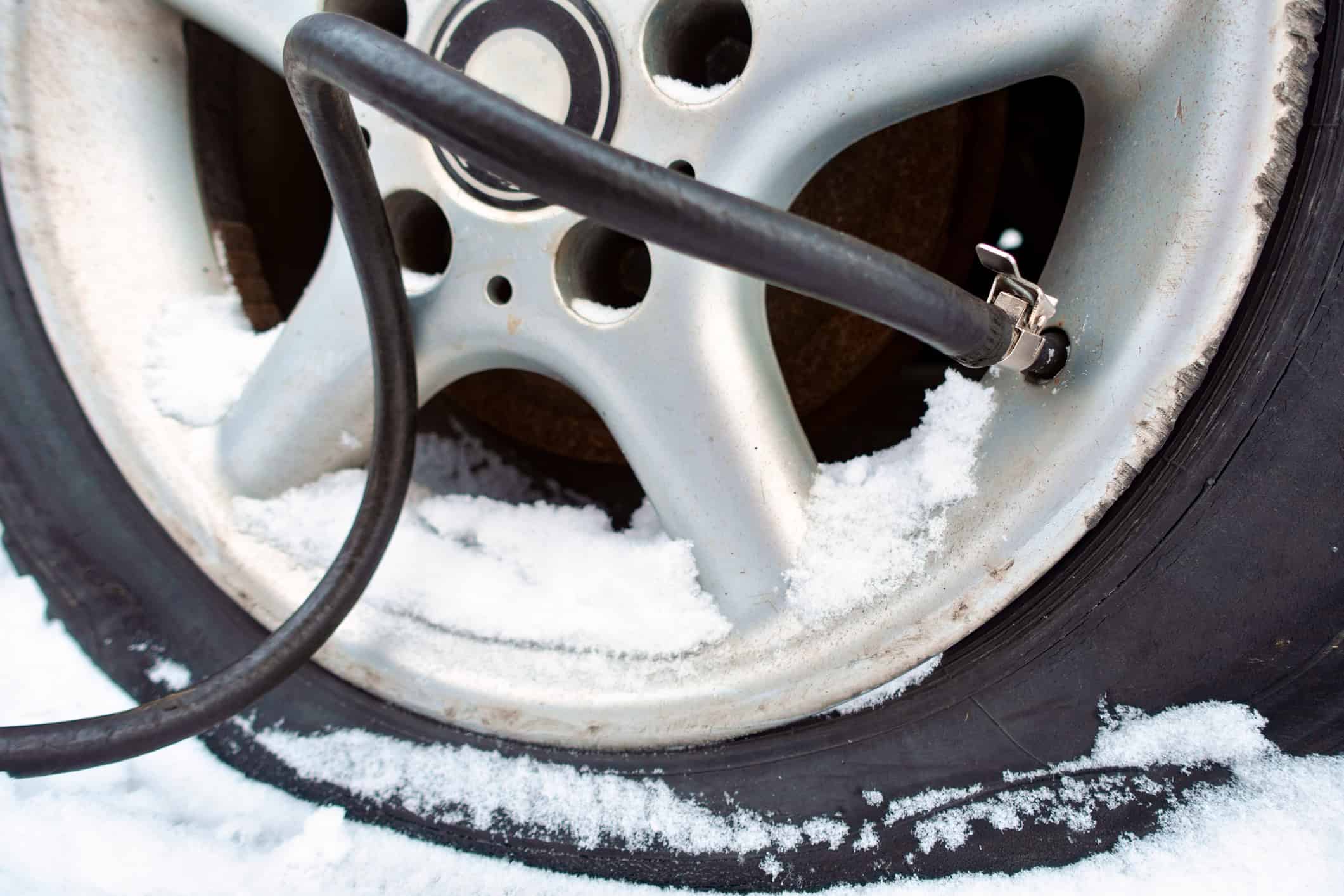Have you ever woken up on a cold winter morning to find one or more of your car tires flat? If so, you’re not alone. Winter can be brutal on your vehicle, especially your tires. But why do car tires go flat in winter more often than in other seasons? Understanding the reasons behind this common problem can help you prevent it from happening and ensure your car remains safe and reliable throughout the colder months.
The Science Behind Flat Tires in Winter
Car tires go flat in winter largely due to the effects of cold temperatures on the air pressure inside the tire. Air contracts when it’s cold, meaning the molecules slow down and take up less space. This drop in temperature leads to lower tire pressure, which in turn can cause your tires to go flat or appear under-inflated. For every 10-degree drop in temperature, your tire pressure can decrease by about 1 to 2 PSI (pounds per square inch).
When your tires lose pressure, they become more vulnerable to damage, and even a small puncture that may not have affected you in warmer weather could lead to a flat tire in the winter.
Cold Temperatures and Rubber Compounds
Tire composition also plays a significant role in why car tires go flat in winter. The rubber compounds used in tires are designed to provide flexibility and grip, but they become stiffer in freezing temperatures. When the rubber stiffens, it’s less able to seal small cracks or punctures, making it easier for air to escape.
In addition, stiffer tires are more susceptible to damage when driving over potholes or road debris, which are common on winter roads. This combination of lower air pressure and stiffer rubber can dramatically increase the likelihood of a flat tire.
Loss of Tire Pressure Due to Temperature Fluctuations
Winter weather is often unpredictable, with temperature fluctuations that can further contribute to tire issues. When the temperature drops overnight and warms up during the day, the constant expansion and contraction of air inside the tire can weaken the tire walls over time. This constant shifting in air pressure can cause a slow leak, which might not be noticeable at first but can lead to a flat tire over time.
If your tires are already slightly under-inflated before winter begins, these temperature swings can make the problem worse, accelerating the loss of air and leading to a flat tire.
The Role of Road Conditions
Winter road conditions are often harsher than those in other seasons, with an increase in road debris, ice, and potholes. Driving over a hidden pothole covered in snow or ice can cause serious damage to your tires, potentially leading to a flat. Cold weather can also cause the pavement to crack, creating sharp edges that can puncture tires.
Additionally, salt and chemicals used to de-ice roads can accelerate the wear and tear on your tires, making them more susceptible to flats. Regularly checking your tires for damage and ensuring they’re properly inflated can help minimize the risks posed by these winter road hazards.
How to Prevent Flat Tires in Winter
Although it may seem inevitable, there are steps you can take to prevent your car tires from going flat in winter:
- Regularly Check Tire Pressure: Make it a habit to check your tire pressure at least once a week during the winter months. Many modern cars come with tire pressure monitoring systems (TPMS), but it’s always a good idea to double-check manually, especially when temperatures drop.
- Invest in Winter Tires: If you live in an area where winters are harsh, consider investing in winter tires. These tires are designed to stay flexible in cold temperatures, reducing the risk of damage and improving grip on icy or snowy roads. Winter tires also tend to lose less pressure in cold weather compared to all-season tires.
- Keep Your Tires Properly Inflated: Make sure your tires are inflated to the manufacturer’s recommended PSI levels. Under-inflated tires not only increase the risk of flats but also reduce fuel efficiency and handling, making your car less safe to drive.
- Rotate and Inspect Tires Regularly: Regular tire rotations can help ensure even wear, which reduces the risk of developing weak spots that could lead to flats. Inspect your tires for any signs of damage, such as cracks, bulges, or embedded debris, before winter sets in.
- Avoid Sudden Impact with Road Hazards: Whenever possible, try to avoid driving over potholes or road debris. If you can’t avoid them, slow down to minimize the impact on your tires.
Understanding Why Car Tires Go Flat in Winter
Car tires go flat in winter due to a combination of cold temperatures, tire composition, and harsh road conditions. As the temperature drops, the air inside your tires contracts, lowering the tire pressure and making them more susceptible to damage. Stiffer rubber, freezing temperatures, and unpredictable road conditions all contribute to an increased risk of flat tires.
By regularly checking your tire pressure, investing in winter tires, and inspecting your tires for damage, you can reduce the likelihood of experiencing a flat tire in winter. Don’t let the cold catch you off guard—prepare your vehicle and your tires to handle winter’s challenges.

